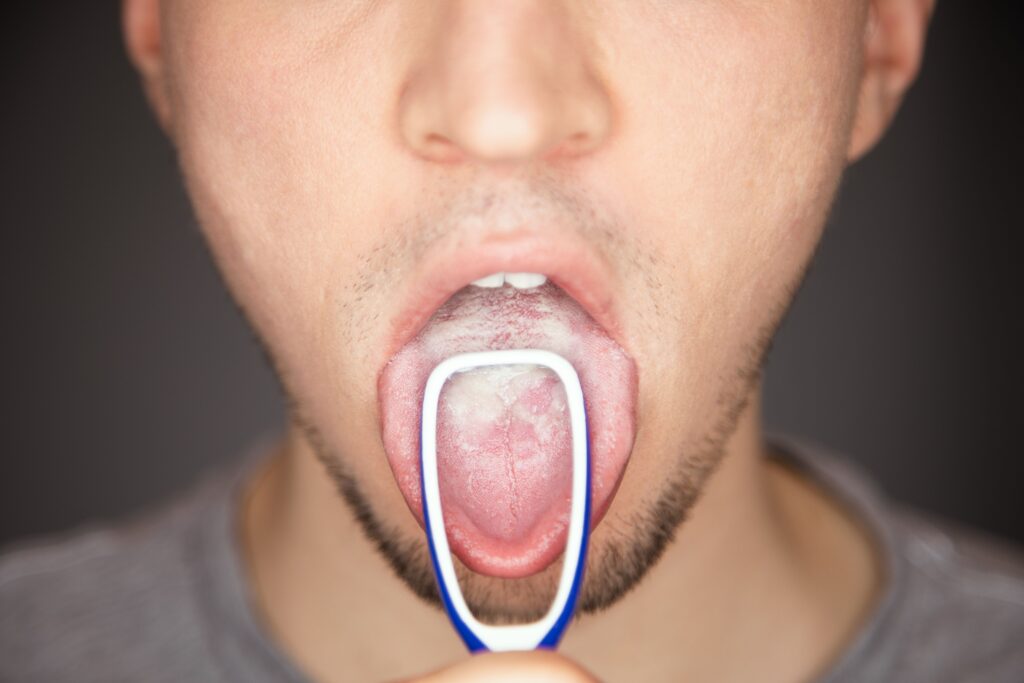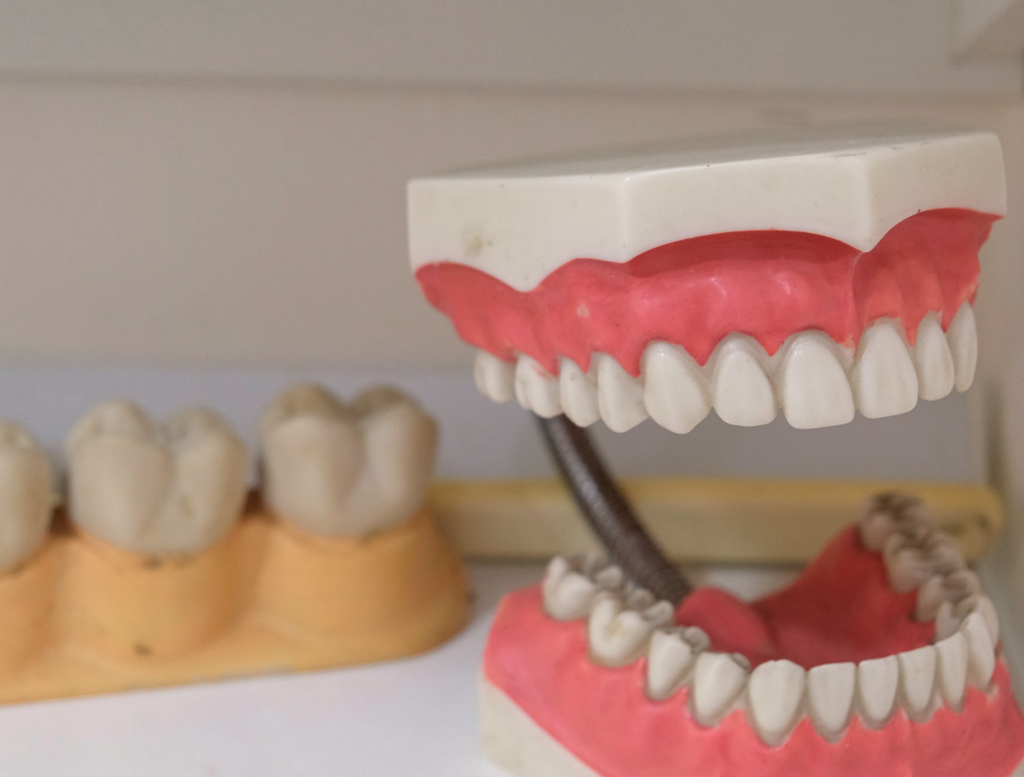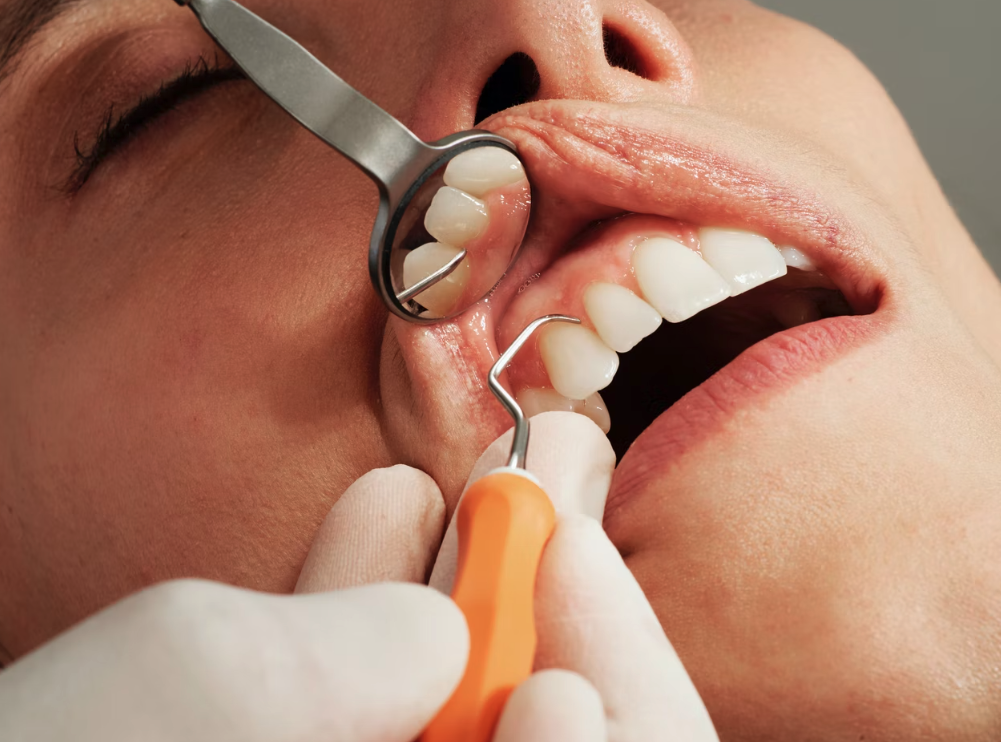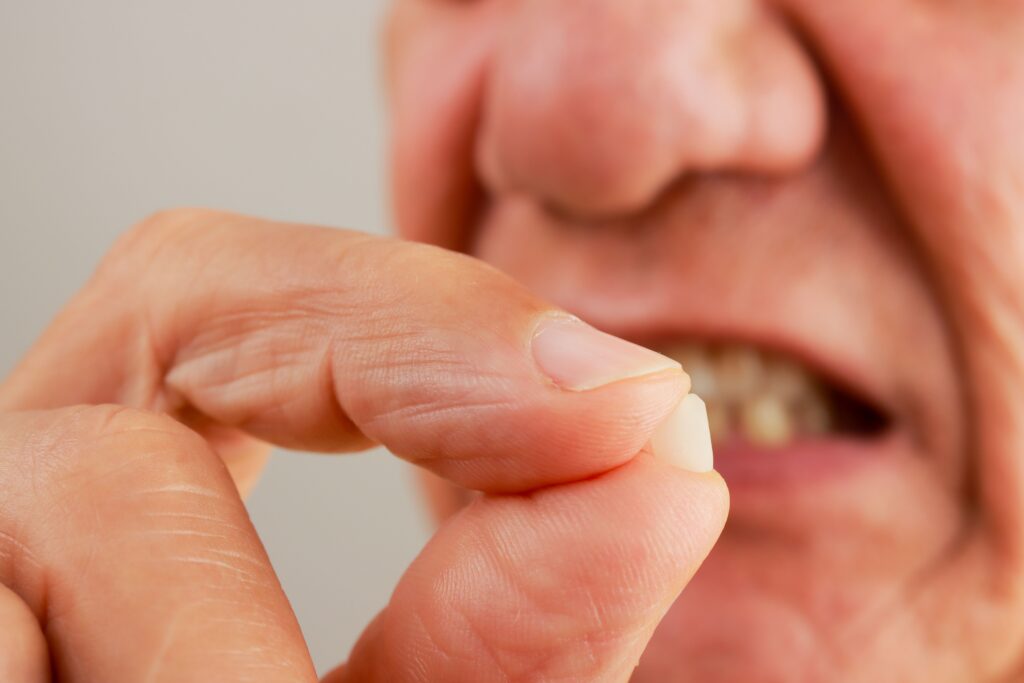Dentures are typically made of plastic or porcelain and can be delicate. Storing them in water helps to keep them clean and retain their shape. Without proper storage, dentures can become warped or cracked.
It is important to use distilled or filtered water when storing dentures. This will help to prevent any build-up of minerals on the dentures that can cause them to become stained. Dentures should be rinsed with water before being stored in order to remove any food particles or debris.
What Does Storing Dentures In Water Do?
Storing dentures in water when you are not using them helps to keep your dentures free of bacteria as well as making sure they keep their shape. When dentures are not stored in water, they can become dry and brittle. This can cause them to crack or break.
When to Store Dentures in Water?

You should generally store dentures in water when you will not be wearing them for an extended period of time. Usually, this is overnight when you are sleeping. Some people also like to store their dentures in water during the day if they are not wearing them.
Should You Store Dentures in Something Besides Water?
Dentures not only can be stored in water, there is a denture solution that is specifically used for storage. This solution typically contains disinfectants and cleansers that can help to keep your dentures clean. If you need to take them out for a short period of time, you can store them in a moist towel. Be sure to never store dentures in hot water as this can cause them to warp.
When storing dentures in water, it is important to use distilled water when you can. This type of water has been filtered and is free of bacteria. You can find distilled water at most grocery stores.
There are also solutions that are made specifically for storing dentures. These solutions can help to keep your dentures clean and free of bacteria. However, they are not necessary and you can store your dentures in water.
Can You Soak Dentures in Vinegar to Clean Them?
Soaking your dentures in vinegar is generally not recommended as it can damage the dentures. Vinegar is an acidic substance and over time, it can eat away at the dentures, causing them to crack or break. If you must soak your dentures in something other than water, you should use a denture soaking solution that is specifically designed for this purpose.
Dentures are an important part of many people’s lives and taking care of them is important. Storing dentures in water overnight is one way to help make sure they stay in good condition. If you have any questions about caring for your dentures, you should talk to your dentist. They will be able to give you specific instructions on how to care for your dentures.
How Long Can you Keep Dentures Out of Water?
You should generally try to keep dentures in water when you are not wearing them. However, if you don’t have a cup of water to store them in, they will be fine for a few days without being stored in water. If you are going to be gone for an extended period of time, it is best to store them in water or a denture soaking solution. This will help to keep them clean and free of bacteria.
Why is Moisture Important for Dentures?
One of the key reasons dentures need to be kept in water or a suitable solution is to maintain moisture. Dentures are typically made from materials like acrylic resin or porcelain, which can become brittle if left to dry out. When dentures lose moisture, they are more prone to cracking or warping, which can affect their fit and comfort. A poor-fitting denture can lead to gum irritation and difficulty chewing, so ensuring that dentures remain moist is critical for their longevity and comfort.
What Happens if You Don’t Store Dentures in Water?
If dentures are left out of water for an extended period, they may shrink or lose their proper shape, leading to discomfort and difficulty wearing them. Dry dentures can also become more susceptible to damage when handled or worn. Rehydrating dry dentures may not always restore them to their original shape, which may necessitate repairs or replacements from your dentist. Therefore, storing dentures in water when they are not in use is crucial to maintain their integrity.
Can You Store Dentures in Tap Water?
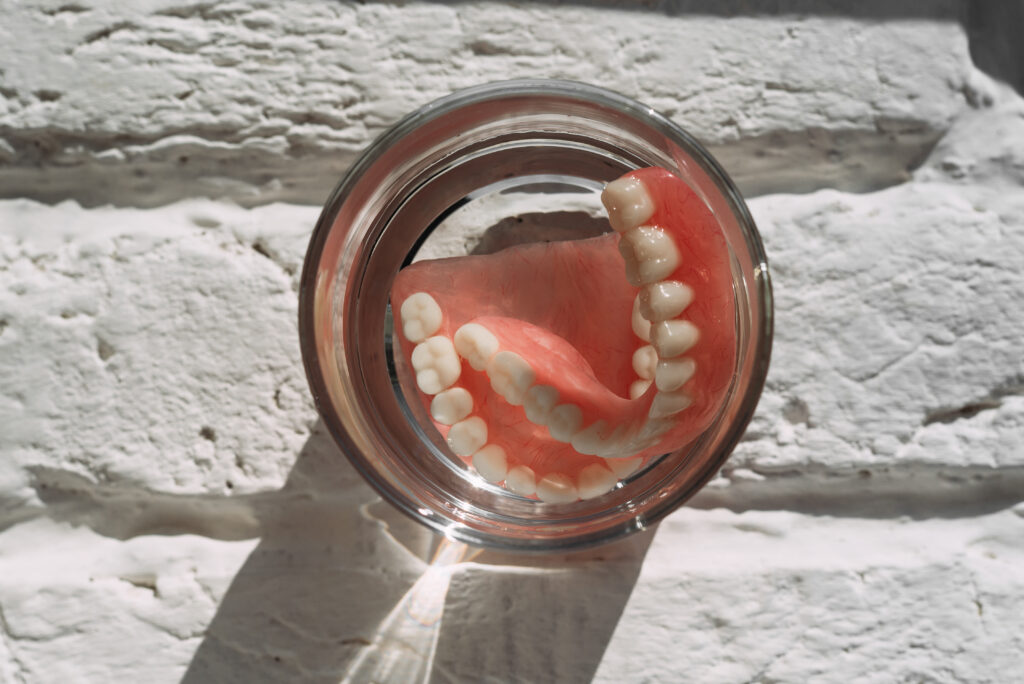
While it is generally recommended to store dentures in water, not all water is created equal. Tap water can contain minerals, chlorine, or other substances that could potentially cause staining or damage to your dentures over time. Using distilled or filtered water is a better option because it doesn’t contain minerals that can accumulate on the surface of the dentures, causing them to lose their shine or appear stained. Denture wearers who live in areas with hard water should particularly avoid using tap water for storage, as hard water contains more minerals like calcium and magnesium.
How Often Should You Clean Dentures?
In addition to storing dentures in water, it’s important to clean them daily. Food particles and plaque can build up on the surface of dentures just like they do on natural teeth, leading to bad breath, gum irritation, or even infections if not properly cleaned. Cleaning dentures involves brushing them with a soft-bristled toothbrush and a non-abrasive denture cleaner. Regular toothpaste should not be used, as it can scratch the surface of the dentures. After cleaning, dentures can be stored in water or a denture-cleaning solution overnight.
Do Dentures Need to Be Soaked Every Night?
While it’s generally recommended to soak dentures overnight, it’s also important to remember that dentures should be given some time out of the mouth each day to allow your gums to rest. Denture wearers are often advised to soak their dentures in water or a cleaning solution overnight while they sleep. However, if soaking isn’t possible overnight, denture wearers should at least soak them for a few hours each day to prevent them from drying out and to allow thorough cleaning.
What Should You Avoid When Cleaning and Storing Dentures?
Certain household cleaners, like bleach or vinegar, can be too harsh for dentures and may cause damage over time. Bleach can whiten the pink part of the dentures, which is meant to resemble gum tissue, while vinegar’s acidity can wear down the surface of the dentures. It’s also important to avoid storing dentures in hot water, as heat can cause them to warp. Stick to mild denture-cleaning solutions or a mixture of water and a specialized denture tablet to clean and disinfect dentures properly.
Can Dentures Develop Bacteria or Fungi?
Just like natural teeth, dentures can harbor bacteria and fungi if they aren’t properly cleaned. Dentures that aren’t cleaned or stored in water can become a breeding ground for harmful microorganisms, which may lead to conditions like denture stomatitis, a type of oral infection caused by fungal overgrowth. This condition can cause redness, swelling, and discomfort in the gums and roof of the mouth. Regular cleaning and proper storage in water or a disinfecting solution can help prevent bacterial or fungal infections.
What to Do If Your Dentures Don’t Fit Properly?
Over time, dentures may begin to feel loose or ill-fitting, even if you store and care for them properly. Changes in the shape of your gums and jawbone can cause dentures to lose their snug fit. If this happens, it’s essential to visit your dentist to have your dentures relined, adjusted, or even replaced. Wearing ill-fitting dentures can cause discomfort, sore spots, and difficulty eating or speaking. Additionally, improper fit can increase the risk of dentures slipping or falling out while eating or talking, which can be embarrassing or inconvenient.
Contact Family Tree Dental For Questions About Dentures
If you have any questions about dentures or how to care for them, contact Family Tree Dental. We are always happy to help our patients with any questions they have about their dental care. You can reach us by phone or filling out an online contact form. We look forward to hearing from you!



